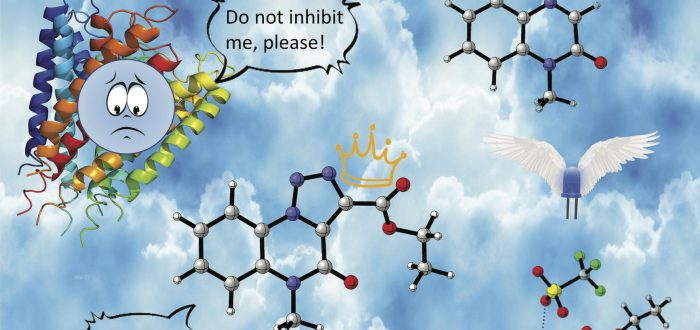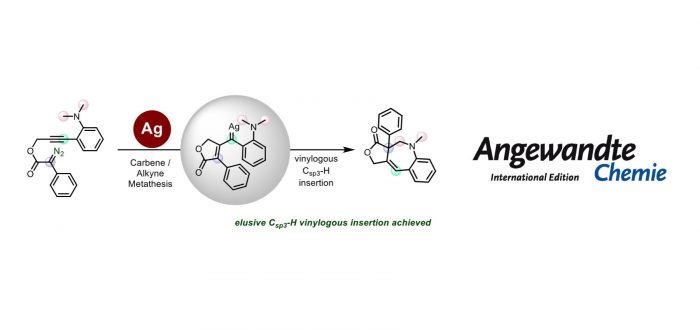One of the priorities of the IQCC is to strengthen the connections with industry, both nationally and internationally. Continuation of ongoing collaborative research efforts and initiating new joint projects are a high priority for the institute. Actually, there are several collaborations established with the private sector, some of them with the Osuna lab. In the last two
- sec.iqcc@udg.edu
- +34 972 41 83 57
News
Recently, Roger Monreal-Corona, Emili Besalú, Anna Pla-Quintana and Albert Poater reported in Organic & Biomolecular Chemistry on “Photoredox catalysis leading to triazolo-quinoxalinones at room temperature: selectivity of the rate determining step”. The interest in the fusion product of quinoxalinone skeletons and 1,2,3-triazole units has greatly increased in recent years since they are known to be
Nature has recently published an article (by Rachael Pells) about neurodivergence featuring neurodivergent scientists. One such scientist is Dr. Ouissam El Bakouri researcher at the Institute of Computational Chemistry and Catalysis (IQCC) from the University of Girona who got interviewed (among another three) and explains and shares his challenges and experiences day to day and through
Last Friday, the IQCC organized a meeting to show the documentary Picture a Scientist and a round table with Assumpció Vila Simon, Anna Pla-Boix and Carme Font-Paz to highlight gender inequality in science during the Science Week. The film tells the stories of several prominent female researchers and brings to light the barriers that they encountered, including cases of discrimination
Every year in November, the IQCC is organizing together with the Scientific Culture and Digital Communication (C4D) unit of the UdG some activities for Science Week with the aim to bring our science closer to the Girona general public. Last Friday, November 18, 2022, the Diada de Sant Albert took place at Science Faculty of UdG. The
Last Thursday, the IQCC organized the third edition of the IndustryQCC Forum with four national and international companies (Repsol, Eli Lilly, AstraZeneca and Pfizer) during the Science Week. The IndustryQCC Forums provide young (and more advanced) researchers of IQCC the opportunity to get to know the research carried out in (bio)chemical industry in different parts of
The trapping of the elusive vinylogous position of a vinyl carbene with an aliphatic Csp3-H bond has been achieved for the first time during a silver-catalyzed carbene/alkyne metathesis (CAM) process. A Tpx-containing silver complex first promotes the generation of a donor-acceptor silver carbene which triggers CAM, generating a subsequent donor-donor vinyl silver carbene species, which
Reactions that enable selective functionalization of strong aliphatic C–H bonds open new synthetic paths to rapidly increase molecular complexity and expand chemical space. Particularly valuable are reactions where site-selectivity can be directed toward a specific C–H bond by catalyst control. Herein we describe the catalytic site- and stereoselective ?-lactonization of unactivated primary C–H bonds in
Two oxoiron(IV) isomers ( R2a and R2b) of general formula [FeIV(O)(RPyNMe3)(CH3CN)]2+ are obtained by reaction of their iron(II) precursor with NBu4IO4. The two isomers differ in the position of the oxo ligand, cis and trans to the pyridine donor. The mechanism of isomerization between R2a and R2b has been determined by kinetic and computational analyses
Last Thursday took place the Autumn edition of the IQCC Forum, a quarterly meeting-place where high-quality science is discussed. The IQCC Forum gives the opportunity for PhD and postdoc members of the IQCC to present their work to a select group of critical researchers, enhancing intra-IQCC collaborations and promoting knowledge exchange within the institute. This










